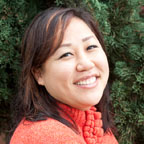- About Archives
- About SAA
- Careers
- Education
- Publications
- Advocacy
- Membership
 Professional Experience: Managing Archivist, Gay, Lesbian, Bisexual, Transgender Historical Society, 2007–present. Software Archivist, Computer History Museum, 2006–2007.
Professional Experience: Managing Archivist, Gay, Lesbian, Bisexual, Transgender Historical Society, 2007–present. Software Archivist, Computer History Museum, 2006–2007.
Education: BA, History and English, University of California, Irvine, 1999. MLIS, San Jose State University, 2006.
Professional Activities: Society of American Archivists: Member since 2006. Archivists and Archives of Color Roundtable Co-chair, 2008–2010. Member Values Task Force, 2009. Annual Meeting Speaker, “Survey Says: Motivations, Methodologies, and Findings from Four Archival Repository Surveys,” 2009. Program Committee Member, 2011. Society of California Archivists: Member since 2006. Education Committee, 2007–present. Local Arrangements Committee, 2008–2009. Annual Meeting Speaker, "From Vault to Computer/TV Screen: Sharing Your Moving Image Treasures with the Whole World,” 2009. Program Committee Member, 2011.
Question posed by the Nominating Committee: As SAA celebrates its 75th Anniversary, what does it mean to be a SAA leader in the 21st century?
From the very beginning of my career and my time in SAA I have been grateful to those that always made me feel welcome and encouraged me to be involved in the organization. I believe that an effective leader is someone who can unlock potential in those around them and help expand their talents. These were not great endeavors, but small actions that helped create a sense of belonging for me. A leader should be able to connect with others, encourage professional growth, and create a sense of belonging.
As archivists we know that the world we work in is evolving, for example we are operating in an increasingly digital and connected world. We now see digital materials come into our repositories, an increase in demand for prompt electronic responses, and an expectation to search and view archival materials online. Other transformations we may come across are institutional changes, which could be corporate transitions, changes in management, or greatly modified budgets. A leader should be able to anticipate change and be able to plan and respond to them effectively.
More advocates are needed for our profession to promote the importance of archives and the roles of archivists. As archivists we do a lot and the public should be aware of the results of our efforts. Whether it’s helping someone research their family history, teaching students how to work with primary documents, or assisting documentary filmmakers locate materials. Hopefully this awareness will create greater support from the larger public.
An SAA leader should be committed to diversity, not just socio-cultural factors but also professional and geographic factors, with the result being SAA becomes representative of society as a whole. It’s my hope that those who are chosen to lead SAA will be understanding and supportive of the wide variety of needs of its members.